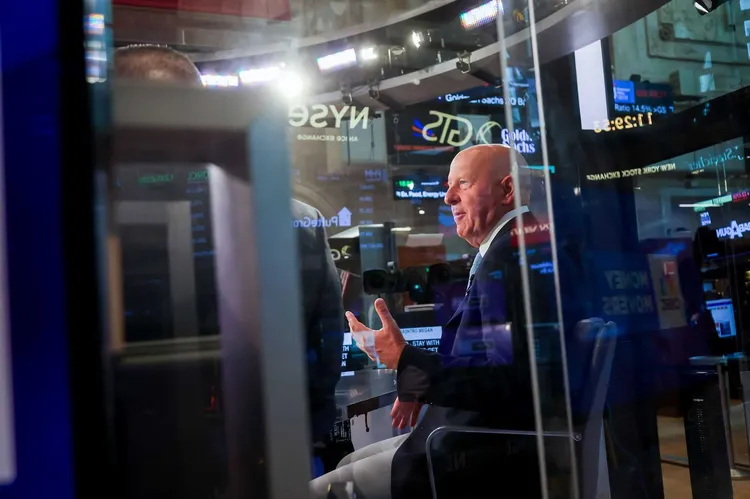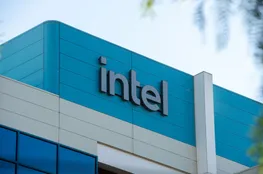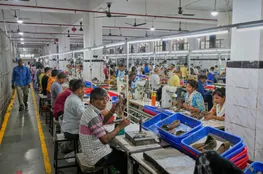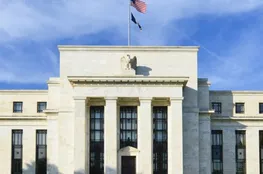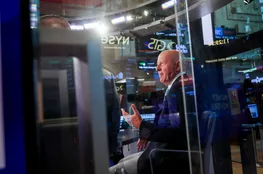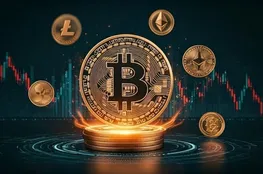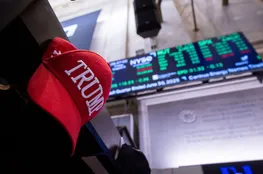Donald Trump has publicly criticized Goldman Sachs, specifically CEO David Solomon, over the bank’s recent research suggesting that increased tariffs are primarily impacting consumers through rising prices. In a Truth Social post released on Tuesday, Trump asserted that tariffs haven’t caused inflation or any other issues for the United States, adding that they’ve instead resulted in "massive amounts of CASH pouring into our Treasury’s coffers." The president’s statement directly challenges Goldman Sachs’ findings, accusing Solomon and the bank of refusing to acknowledge the positive economic effects of the tariffs. Trump’s remarks represent a pointed attack, suggesting Solomon’s economic analysis is flawed and failing to recognize the benefits of the trade policies. He urged Solomon to hire a new economist or, alternatively, to abandon his role at Goldman Sachs and pursue a career as a DJ, referencing Solomon’s previous experience performing at high-profile events before he ceased this activity two years prior under pressure from the bank’s board. This escalation highlights the ongoing tension between the former president and Wall Street institutions, particularly regarding trade policy and its impact on the American economy.
The situation continues to be monitored closely as it impacts consumer behavior and overall economic stability. The contrasting perspectives – Trump’s focus on Treasury inflows versus Goldman Sachs’ forecasts of increased consumer costs – reflect a fundamental disagreement about the economic benefits and drawbacks of the current trade landscape. Ultimately, the situation highlights the challenge of accurately predicting economic outcomes and the diverse interpretations of economic data. The release of the latest inflation data provides a crucial benchmark, suggesting a more nuanced understanding of the economic situation than solely relying on the predictions of a single financial institution. New inflation data released on Tuesday revealed that consumer prices rose 0.2% in July, maintaining an annual inflation rate of 2.7% according to the Consumer Price Index. This data further complicates the narrative surrounding tariffs and their impact, suggesting that the economic effects haven’t been as pronounced as initially anticipated.
Donald Trump has publicly criticized Goldman Sachs, specifically CEO David Solomon, over the bank’s recent research suggesting that increased tariffs are primarily impacting consumers through rising prices. In a Truth Social post released on Tuesday, Trump asserted that tariffs haven’t caused inflation or any other issues for the United States, adding that they’ve instead resulted in "massive amounts of CASH pouring into our Treasury’s coffers." The president’s statement directly challenges Goldman Sachs’ findings, accusing Solomon and the bank of refusing to acknowledge the positive economic effects of the tariffs. Trump’s remarks represent a pointed attack, suggesting Solomon’s economic analysis is flawed and failing to recognize the benefits of the trade policies. He urged Solomon to hire a new economist or, alternatively, to abandon his role at Goldman Sachs and pursue a career as a DJ, referencing Solomon’s previous experience performing at high-profile events before he ceased this activity two years prior under pressure from the bank’s board. This escalation highlights the ongoing tension between the former president and Wall Street institutions, particularly regarding trade policy and its impact on the American economy. The president’s statement directly challenges Goldman Sachs’ findings, accusing Solomon and the bank of refusing to acknowledge the positive economic effects of the tariffs. Trump’s remarks represent a pointed attack, suggesting Solomon’s economic analysis is flawed and failing to recognize the benefits of the trade policies. He urged Solomon to hire a new economist or, alternatively, to abandon his role at Goldman Sachs and pursue a career as a DJ, referencing Solomon’s previous experience performing at high-profile events before he ceased this activity two years prior under pressure from the bank’s board. This escalation highlights the ongoing tension between the former president and Wall Street institutions, particularly regarding trade policy and its impact on the American economy.
Goldman Sachs’ economists predicted that consumers would absorb 22% of tariff costs through June, with this figure expected to rise to 67% by October if tariffs continue to follow the initial pattern. Despite this forecast, Trump did not specifically address the report in his post, indicating a strategic divergence in their messaging. Goldman Sachs’ chief economist and a highly influential figure within Washington and on Wall Street, Jan Hatzius, is the author of the report predicting the shift in consumer tariff costs. Hatzius was notably an outlier in 2023 for correctly predicting the US economy wouldn’t enter a recession, a prediction that has gained significant attention and validation. His team’s forecasts regarding tariffs align with those of other leading financial institutions, all of which warn consumers will experience "tariff-related sticker shock." However, despite the implementation of numerous higher tariffs by Trump over the past months, this "sticker shock" hasn’t materialized to the extent predicted.
Goldman Sachs declined to comment on Trump’s remarks, demonstrating a standard response to the president’s often-unfiltered criticisms. Jan Hatzius, Goldman Sachs’ chief economist and a highly influential figure within Washington and on Wall Street, is the author of the report predicting the shift in consumer tariff costs. Hatzius was notably an outlier in 2023 for correctly predicting the US economy wouldn’t enter a recession, a prediction that has gained significant attention and validation. His team’s forecasts regarding tariffs align with those of other leading financial institutions, all of which warn consumers will experience "tariff-related sticker shock." However, despite the implementation of numerous higher tariffs by Trump over the past months, this "sticker shock" hasn’t materialized to the extent predicted. Goldman Sachs’ economists predicted that consumers would absorb 22% of tariff costs through June, with this figure expected to rise to 67% by October if tariffs continue to follow the initial pattern. Despite this forecast, Trump did not specifically address the report in his post, indicating a strategic divergence in their messaging. Goldman Sachs declined to comment on Trump’s remarks, demonstrating a standard response to the president’s often-unfiltered criticisms.

